NOT a food blog
Marufuku Udon, Jaya One, PJ
25Oct2010 Filed under: Food Type: Japanese, Location: Petaling Jaya Author: Lyrical LemongrassA blog reader left a comment recently expressing his outrage about the price of food in KL’s upscale restaurants. This brought me back to another online conversation about the price of fruitcakes on a friend’s facebook profile. To summarise that conversation, a 1kg fruitcake with alcohol was retailing at RM75 per kg here in KL. Two ladies in Singapore and Australia picked up on that thread and lambasted the friend, one asking if it was made of gold, and the other saying that it would be cheaper in Australia since one should compare “dollar for dollar”, i.e. a RM75 cake would be equivalent to AUD$75 in Australia. My friend (let’s call him FBB) and I were unable to comprehend the logic of her argument given that the price of raw ingredients was not comparable on a dollar to dollar basis. Taking it a step further, if the fruitcake (at her implied price) formed the “basket of goods” (the Fruitcake Index as opposed to the Big Mac Index hahaha) on which purchasing power parity were determined, then the Ringgit would be grossly undervalued. I guess my point is that a 1kg fruitcake with alcohol at RM75 is not expensive, BUT the blog reader who was unhappy about the price of food in KL’s upscale restaurants does have a valid point. When restaurants are importing raw ingredients because the quality of local produce is not consistent, this pushes up price levels. Food prices are not just determined by the cost of ingredients. Overheads, wages, etc are also relevant factors. But as long as the quality of service isn’t up to mark and wait staff blunder with delivery and dispensing of information, we still have the right to question the prices. Having said that, my boss likes to say, “Aiyah Meena, it’s a chicken and egg thing lah.” People are willing to pay, and restaurants thrive by that demand. So where does that leave us?
**********
I didn’t have to deal with that dilemma several days back when I visited Marufuku Udon. I’d been eating at its sister restaurant, Sanuki Udon, for the past 10 months, almost on a weekly basis. There is a sense of comfort that I derive from slurping up a hot bowl of udon. Maybe it is the simplicity of it all. A bowl of udon, perfectly cooked with a clean and firm bite and modestly adorned with the ingredients of choice, be it a raw egg, wakame, kitsune, kakiage or ebi. How can it not provide happiness?
Marufuku is the fast food version of Sanuki. On weekdays, people place their orders at the counter and carry their meals to their table. Weekends are a bit more laid back and orders are taken at the table. The food is consistent with Sanuki but there are a few more options. Like the Salada Udon (RM8), guaranteed to be popular with the dieters. The udon is prepared al dente and served with a ton of julienned raw vegetables, bits of crunchy tofu and an addictive dipping sauce made of sesame. The Nabeyaki Udon (RM10) is softer than the other forms of preparation because the udon is boiled in stock before serving, giving it enough time to absorb all the flavours from the other ingredients. The raw egg, when stirred into the boiling soup, gives it a wonderful aromatic flavour.
Udon is made daily at Sanuki and sent over to Marufuku. I can’t think of any other place that prepares its own udon.
Prices start at RM6 for the House Special Udon (udon with raw egg). Extra toppings are at RM1 each. Side dishes are approximately RM3 each, my favourite being the kakiage available in 3 types, original, with prawns and with pumpkin. At night, yakitori is available at between RM2 and RM3 per stick. If the yakitori is anything like Sanuki’s, then you’re in for a treat.
How’s that for cheap AND satisfying?
Marufuku Udon
L-18-G-1, Ground Floor,
Palm Square, Jaya One,
72A, Jalan Universiti, 46200 Petaling Jaya.
(located in between Frontera and Muse)
Open daily from 11am to 10pm
Also check out: I Heart Xen
44 Responses to “Marufuku Udon, Jaya One, PJ”
Leave a reply
About this blog
Food, for me, is a means to an end and not an end in itself.
Food, for me, represents the love of family, the fellowship of friends, and the community and communality it brings.
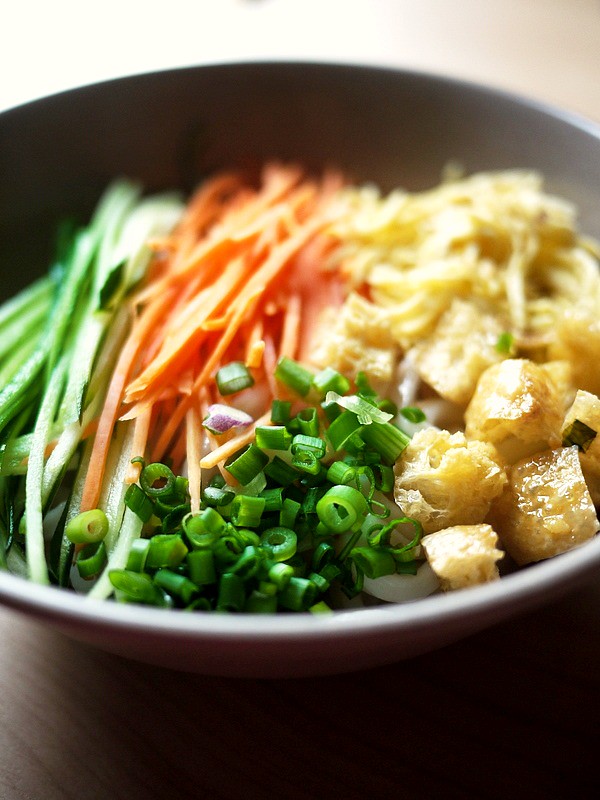
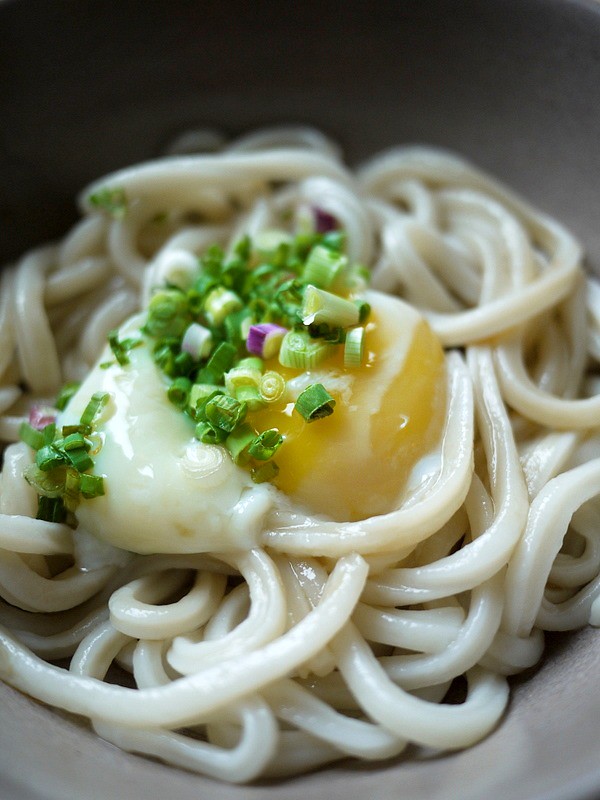
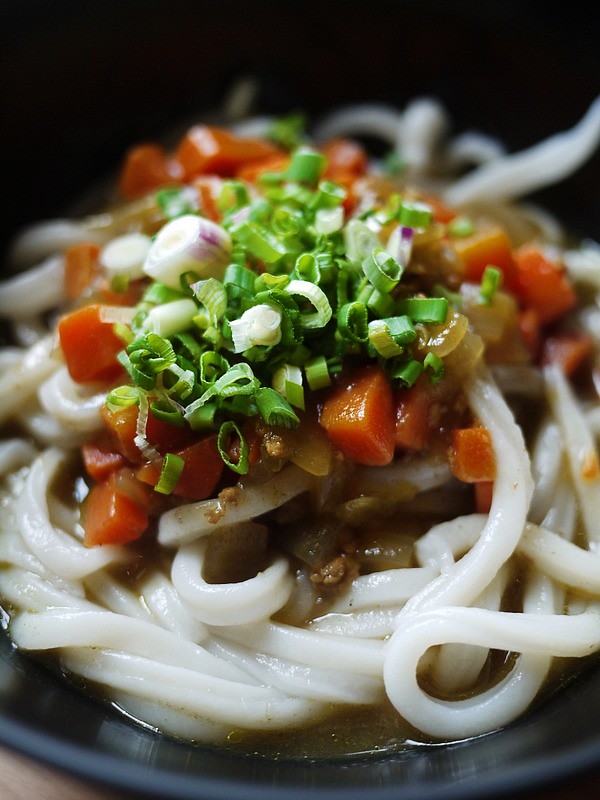
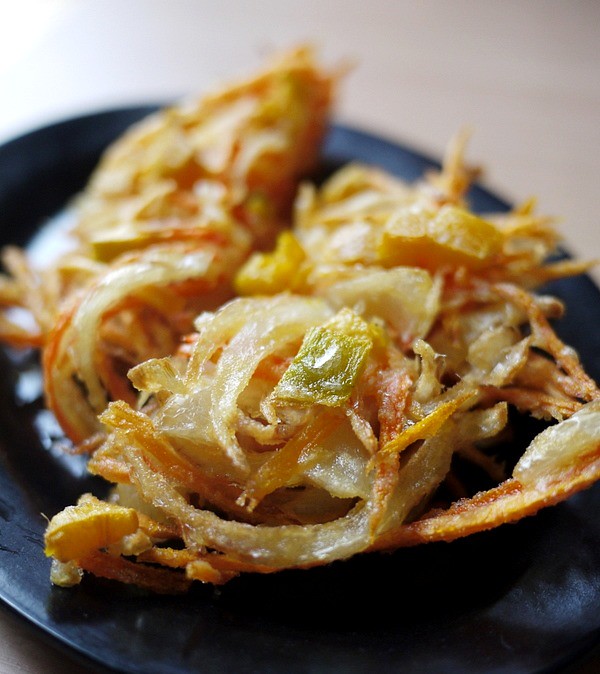
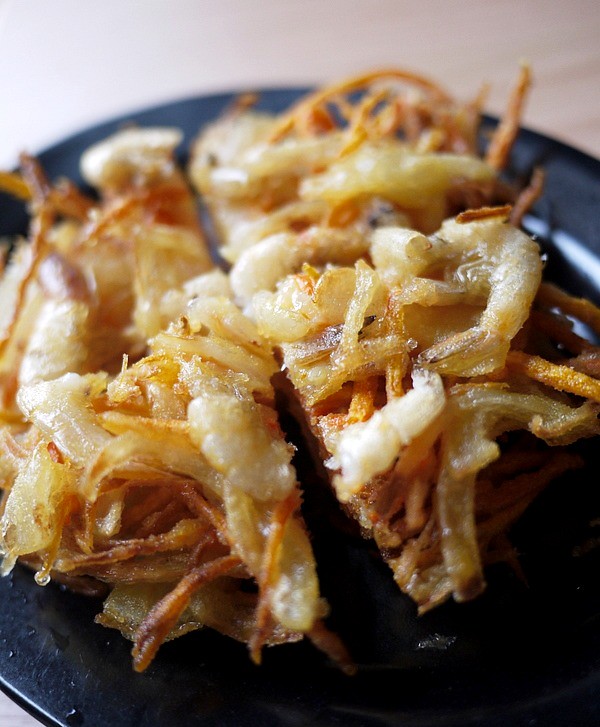
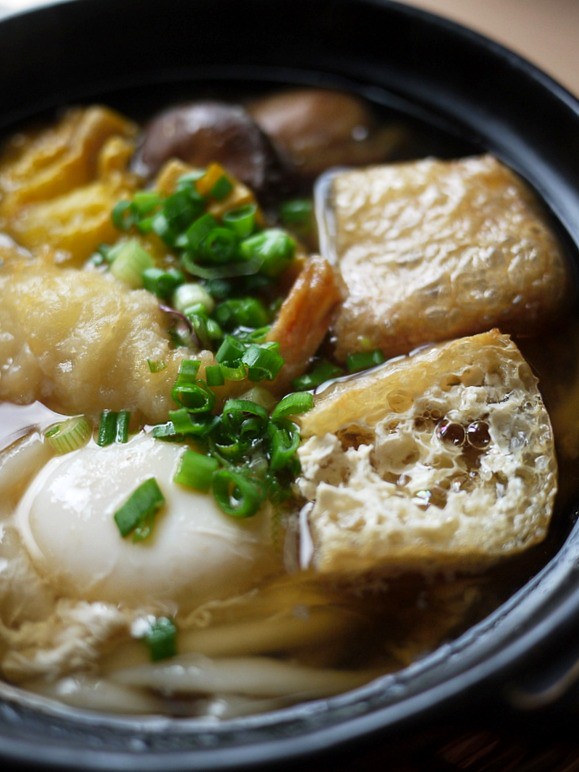
Life for Beginners
October 25th, 2010 at 9:37 pm
Oh yay! My fave udon place just sprouted a new branch! And at Jaya One too, one of my fave PJ haunts too. Oh will the joy and wonder never cease? 😀
neko-hime
October 25th, 2010 at 10:57 pm
OoH… I don’t have to go so far my Udon! Love the egg + udon picture.
Sean
October 26th, 2010 at 2:07 am
ya, the yakitori here is as good as sanuki’s! they deserve an A for quality control! 😀
lotsofcravings
October 26th, 2010 at 5:20 am
it really cant b comparable unless every country has an equal currency and produces the exact same items. in any case, if its any consolation, aud dining ISNT that cheap either..their degustation menus are around aud 200 (almost equivalent to some sort of fine dining in msia dollar for dollar)
ohh nvr got around eating sanuki udon..must go hunt for some noodle joints 1st!
ciki
October 26th, 2010 at 7:18 am
Oooh! Looks just like Sanuki Udon.. but the “faster” version yay! LOL, Must gooooooo 😀
ciki
October 26th, 2010 at 7:19 am
sooooo many Jap noodle restaurants, can survive kah.. time will tell.. BUT GOOD! near me mah.. 🙂
J the Chocoholic
October 26th, 2010 at 9:02 am
Wah! Very worth it….
🙂 🙂 🙂
unkaleong
October 26th, 2010 at 9:11 am
You. Me. Udon. Maybe some siham on the side. When?
FBB
October 26th, 2010 at 9:35 am
how to pronounce ah? marafaka?
yes, i also failed to see the fruitcake logic.
J the Chocoholic
October 26th, 2010 at 9:50 am
Oh, about the fruitcake logic – some people just can’t wrap their heads around it it no matter how hard you try.
I remember trying to explain why stuff (eg. a Kit Kat) in Msia is more “expensive” vs in Australia because of the worldwide commodity prices and our Ringgit being kinda weak and I was brushed off as not “getting it”….
(… and this person was a DIRECTOR of an international company… *muntah darah*)
Lyrical Lemongrass
October 26th, 2010 at 9:50 am
LFB: Such an easy man to please. 🙂
neko-hime: Hehe…hubby likes that pic too! Yeah, it’s easier to find compared to Sanuki if one is not familiar with Tmn Bukit Desa. But you are since I’ve read your Sanuki post before. 🙂
Sean: Yep, am glad that quality hasn’t suffered one bit!
Nips: Sigh, if I were in Oz, I won’t be able to afford fine dining. When you coming back for a visit?
ciki: I’m quite sure Marufuku will survive. Food is cheap and good. What’s there not to like hor…
J: Yep, am glad for more choices in Jaya One. 🙂 Am tired of eating at the same place everytime I go and watch a play there!
unkaleong: hahaha…..anytime. I’m damn free. But they don’t have see hum. How?
FBB: This is a child-friendly blog. Dawg. Thanks for inspiring me to write this post.
Lyrical Lemongrass
October 26th, 2010 at 9:59 am
J: Hehe….no need to get all worked up, I guess. I’ve realised that you can argue anything both ways. The director is probably insisting on an ideal world where there is no inflation, etc. He doesn’t live in Malaysia, does he? hehe.
chaokar
October 26th, 2010 at 10:39 am
i laike saying marufuku 3x’s. LOL
It’s so near moi office. I pergi try.
Lyrical Lemongrass
October 26th, 2010 at 10:51 am
chaokar: Can you write a song about marufuku? 😛
Pureglutton
October 26th, 2010 at 11:03 am
Jaya One is definitely nearer & easier to find and yr gorgeous udony pics are so motivational to visit this place soon! Since u are “damn free”, let’s go soon la! LTNS oredi.
Lyrical Lemongrass
October 26th, 2010 at 11:07 am
Pureglutton: Yep, easier to give directions to Jaya One as compared to Taman Bukit Desa. 🙂 Name the time and day, ma’am! 🙂
KY
October 26th, 2010 at 2:53 pm
I wanna go theree!!
hockman
October 26th, 2010 at 3:25 pm
I stand by my position that upscale KL restaurants are often outrageously priced. My comparison with NYC restaurants is a fair one: these places have high overheads and competent fully-trained staff that command considerable salaries. I’d also argue that their sourcing of heirloom produce from specialist sources is not cheap either!
On the other hand, I fully support a place like Sanuki Udon. They offer a good honest product at an honest price. Places like these need more of our support. Fortunately last week when I was there last week, it was packed.
hockman
October 26th, 2010 at 3:29 pm
I’d also add that you’ve hit the nail on the head:
These KL restaurants charge what they want because they know they can get away with it.
Barbie
October 26th, 2010 at 3:31 pm
Tell those women, if 1kg of fruitcake is made of gold, it would cost approx RM150,000.00, give or take 10%. And won’t taste good at all. Sure as hell won’t be selling for RM75.00 only. Hmm, must go find out what pure gold tastes like. 😉
Lyrical Lemongrass
October 26th, 2010 at 3:43 pm
KY: And you must! 😀
Hockman: Thanks for highlighting this. It would be interesting to see how the upscale restaurants defend themselves. Those situated in hotels have even higher overhead costs which obviously means that we, as customers, are forking out a larger percentage of the price for overheads rather than for food. However, I did go for one dinner at a hotel where the meal was cooked by a visiting chef from a Michelin starred restaurant and I paid about RM600 for that meal….I found out that they were running on very very thin margins due to the exorbitant prices on imported ingredients used. Makes one wonder if the middle man in Malaysia is making higher than normal profits.
Oh, Hockman, you should check out Unkaleong’s blog as well. He wrote about the same topic. –> http://volumesinmylife.blogspot.com/2010/10/rising-cost-of-food.html
Barbie: Hehe…perhaps gold is cheaper in Singapore? 😀 Hey, you can try gold leaf decorations…aren’t they made from some type of gold?
Paranoid Android
October 26th, 2010 at 4:14 pm
Looks more promising than the Ramen we had that day! Discussion demand and supply curve in a food blog? :p Gives me a headache and a heartache. But sometimes, parting is such sweet sorrow isn’t it (referring to money and food)?
Lyrical Lemongrass
October 26th, 2010 at 4:26 pm
PA: OMG, I need to erase all memories of that ramen! Two times unlucky, there won’t be a third for sure. Not sure how the blog post veered towards economics, especially since I threw away all my economics books 20 years ago, but hey, as you very well know, shit happens on food blogs. 😀 Parting is such sweet sorrow, that I shall say good bite unless it be marrow…! I think a savings plan for foodies is in order…
thule aka leo
October 26th, 2010 at 4:53 pm
just read Sean’s post on this place! Most likely gonna check it out this coming weekend!
Lyrical Lemongrass
October 26th, 2010 at 4:58 pm
thule: That’s great! Have a great time there! 🙂
neko-hime
October 26th, 2010 at 5:35 pm
So… this one got handsome owner or not 🙂
unkaleong
October 26th, 2010 at 5:51 pm
Udon first. See Ham = SS2 Wai Sek Kai 😉 On?
Lyrical Lemongrass
October 26th, 2010 at 6:01 pm
neko-hime: the handsome hunk drops in sometimes. 😀 he is co-owner together with two other partners.
unkaleong: i’m a lazy bum. once i sit, u can’t make me move.
lotsofcravings
October 27th, 2010 at 7:48 am
cant find a ticket cheap enuf to go back at the end of the year!
Lyrical Lemongrass
October 27th, 2010 at 11:17 am
Nips: Oh how sad! Well I hope some of your family will be visiting you down under then!
gfad
October 27th, 2010 at 7:47 pm
I pwomise I will cum bek and wead later..
I’ve got a gutter mind.. Daika-nyama, Maru-fuk-u.. 😀
A Lil Fat Monkey
October 27th, 2010 at 10:39 pm
RM6 per bowl of Udon that’s not even imported? Gasp! That’s outrageous. How can one make any money from that, and still pay high rents (I’m assuming of cos) at a place like Jaya One?
Anyway, I’m all got Sanuki’s sister. I think she’s hot too. Ken told me about his new venture. Have yet to visit it. Guess I’ll have to say “Hi” soon.
Life for Beginners
October 27th, 2010 at 11:50 pm
Oh I am totally easy to please when the quality speaks for itself. 🙂
Mans
October 28th, 2010 at 12:28 am
Hi! I sometimes wonder how the fine dining restaurants in Malaysia and other south east Asian countries fare? From what I have seen and experienced, most of the ingredients that are used are imported produce. Not that there’s anything wrong with this but it would obviously contribute to the price passed on to the customers. Like u said LL, some of the restaurants actually end up with a very small margin. I know how impressive imported ingredients are and most times restaurants use that factor as a selling point. But maybe, maybe it’s also time for the industry to start sourcing and taking advantage of the local and seasonal produce that are available there. I’m sure there are an abundance of ingredients that are available and also more waiting to be discovered. Start spreading the message that local ingredients are more thn good enough to be used to produce 5 star quality dishes.
It is quite expensive to eat out in Australia. Most times u do get your moneys worth. It’s also great to see many great restaurant choosing to proudly show off the local produce.
Btw LL, I will write down a list of restaurants to visit and food to try for your upcoming visit! Are u just visiting Sydney?
The truffle farm is in Perth unfortunately.
Weather should be nice when u get here. 🙂
Random: When I first came here many years ago, I was quite shocked to see how expensive mass manufactured ice creams were, compared to the ones back in my home country!!! Haha. I felt so ripped off I avoided buying them the first year or so!
Mans
October 28th, 2010 at 12:30 am
Oooops! Just realized that comment was a little long. Sorry!
iamthewitch
October 28th, 2010 at 11:14 am
Gorgeous pics LL! Even the simple house udon with just an egg looked appetizing to me. Or maybe I’m hungry. Or maybe both. LOL! With such reasonable (cheap) prices, I’m sure it’ll be a challenge to find a seat during peak hours!
FBB
October 28th, 2010 at 2:39 pm
i think hockman’s “These KL restaurants charge what they want because they know they can get away with it” is a bit simplistic and generalised.
at a glance it would seem so, especially viz a viz our general per capita income. however, we have the unfortunate situation whereby our ringgit is weak, in comparison with those developed nations from whence a lot of fine dining produce comes. also, rentals are very high in good areas. so there is no choice but to factor in these cost which in the end the consumer pays for. it’s not that they can get away with it. and this i learnt only after meeting many people in the industry. before this, i was also of that cynical simplistic view that hockman put forth.
well, at least we have the option of eating a RM1 roti canai, plus some curry, versus eating a RM600 meal by a michelin chef.
kampungboycitygal
October 28th, 2010 at 5:01 pm
Noooooo!!!! *hysterically*
You betrayed the hunky udon man!!!!
Lyrical Lemongrass
October 28th, 2010 at 6:49 pm
gfad: you forgot fukuya.
Munkeyboy: You should go try lah. Yeah, the prices are a steal hor. Like hairy says, they use local produce, so that will keep costs low.
LFB: true, and it doesn’t hurt to have a hunk nearby as well.
David @ Malaysia Asia
October 29th, 2010 at 1:46 am
Hiya Meena, I got to say your pics look really nice and just made me hungry at 2am in the morning. How are you?
David
thenomadGourmand
October 29th, 2010 at 8:38 am
Time for a visit! Cheap food, i like ;p
gfad
October 29th, 2010 at 1:47 pm
Damn! That OUG pork noodles at your sidebar is killing me!! In a place where hot breakfasts are practically non-existent!! Fuk u la..
Oh, it’s akcherly Fuk U, ya? 😉
Lyrical Lemongrass
October 29th, 2010 at 9:59 pm
Mans: I love dining out at Sydney because the food is really fresh and good! I’ve had only good experiences there so far. But I suppose you’re right…prices are a lot more expensive than what you pay here in Malaysia. Yes, would love to get a list from you, but only if you’re not too busy. Thanks!
iamthewitch: Go early. Anyway, there are loads of tables there, and not many people know of the place yet. 🙂
FBB: Thanks for your input. 🙂 I guess we could debate this till the cows come home.
kampungboycitygal: Where got?? Hunk-san is one of the owners of Marufuku lah. 😛
David: Hi!!! been awhile since we last met! I’m good. Hope you are too. Let’s go makan together one day. 🙂
Becks: Hehe…cheap and good food…I like too! 🙂
gfad: take a piece of paper and paste it on the right side of your monitor.
Ken Wong
February 15th, 2011 at 9:18 pm
Marufuku@Taylors (http://on.fb.me/marufukutaylors) is now open. This location is very breezy as there is a nice lake next to it. Perfect for a relaxing week nights’ dinner and weekends’ getaway. We are open daily from 10 to 10. Come and enjoy a simple bowl of udon with the lake view. (We are close on 19th and 26th for minor reno work. Thank you.)